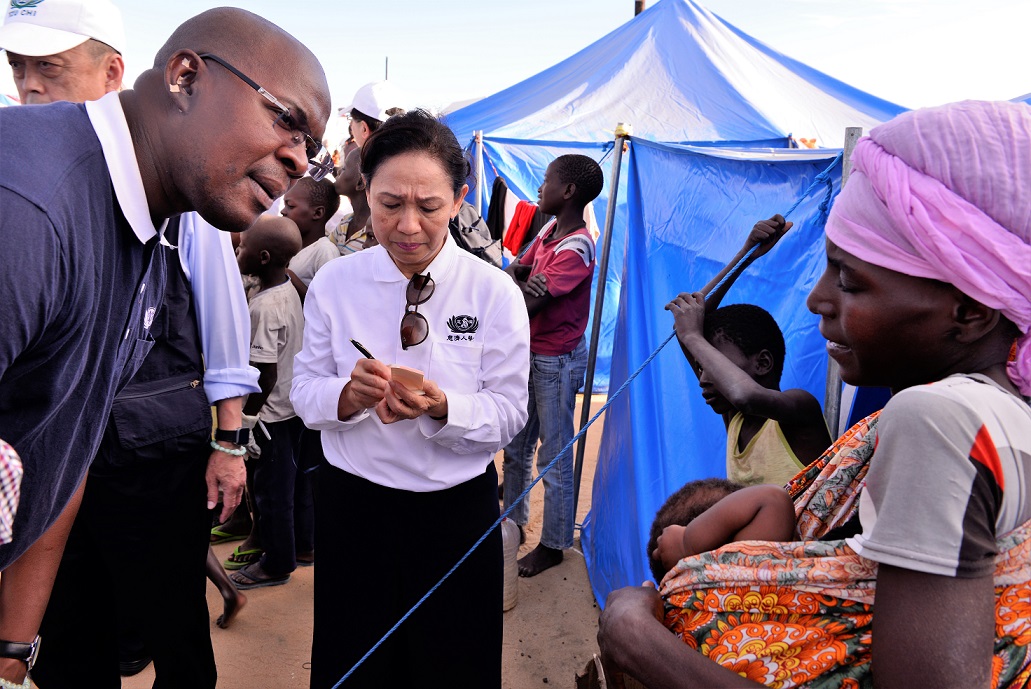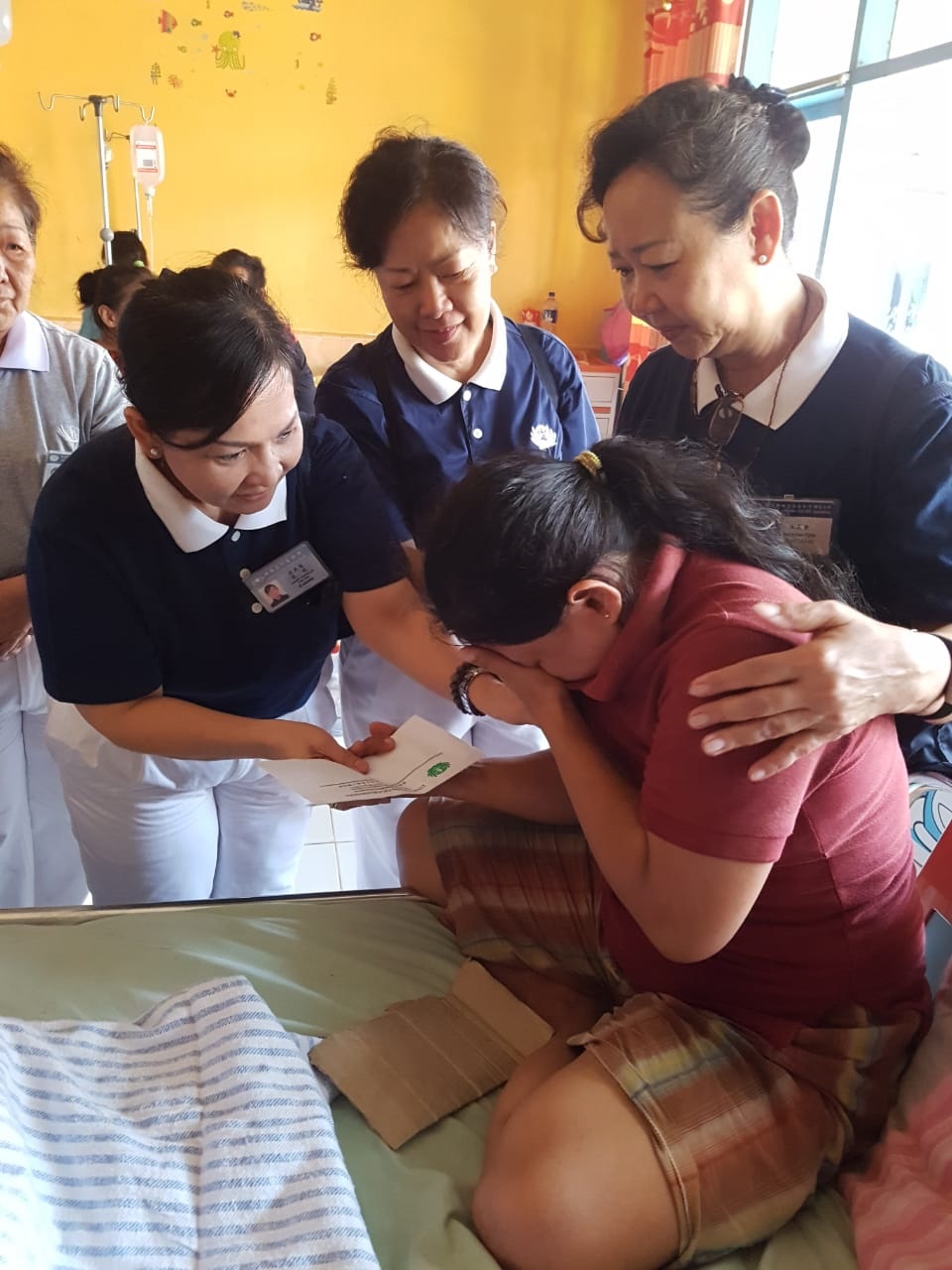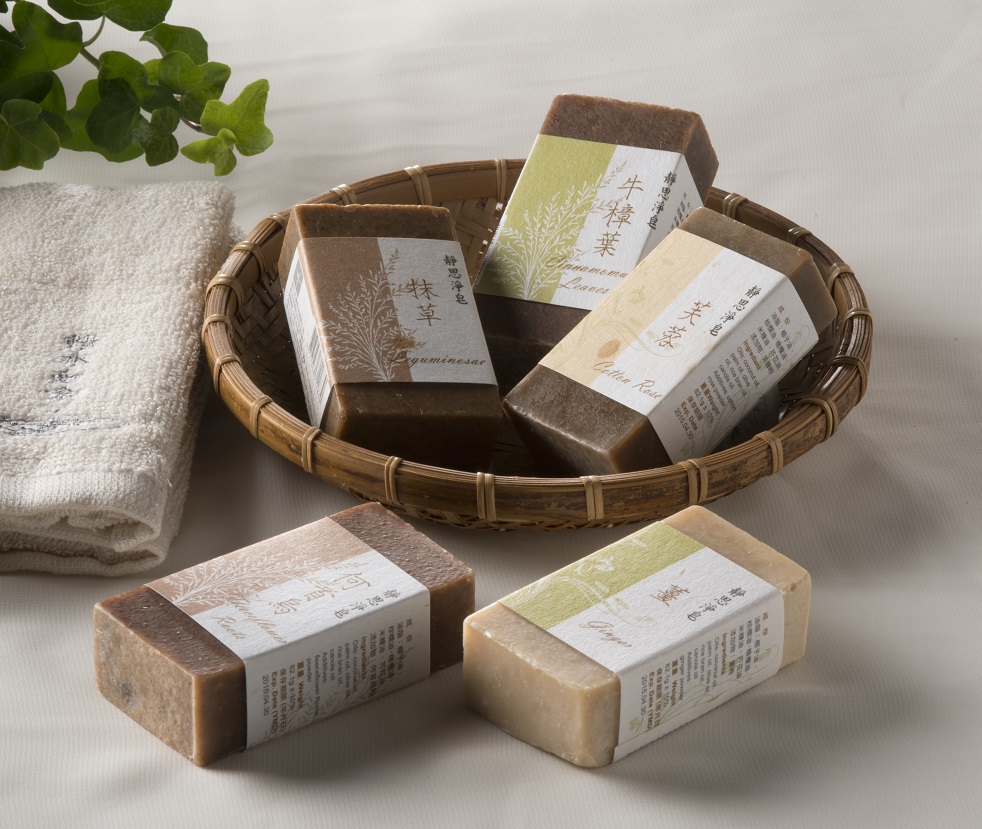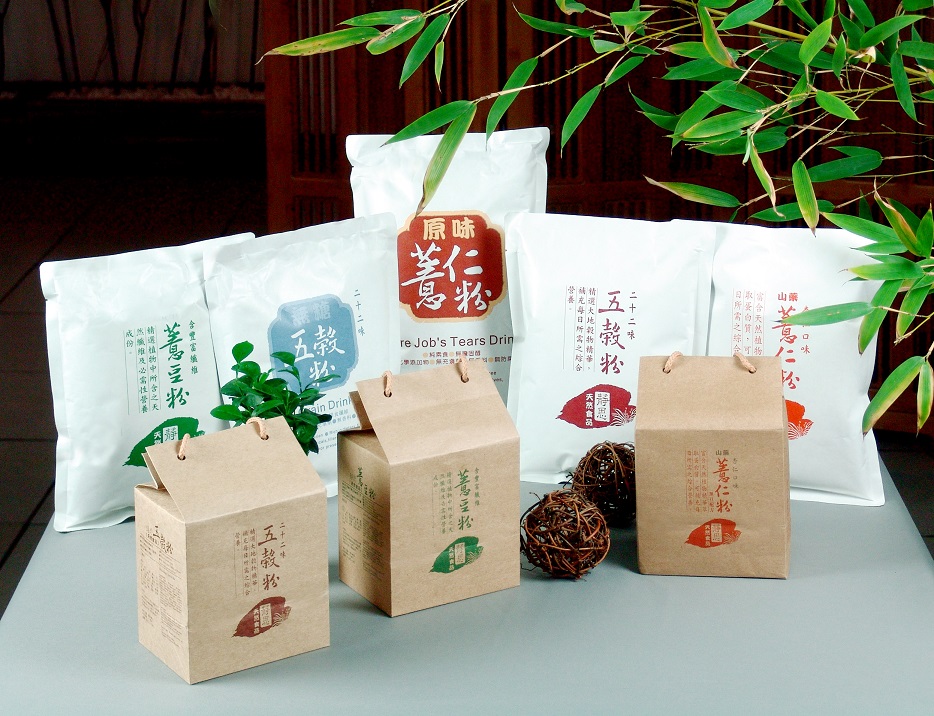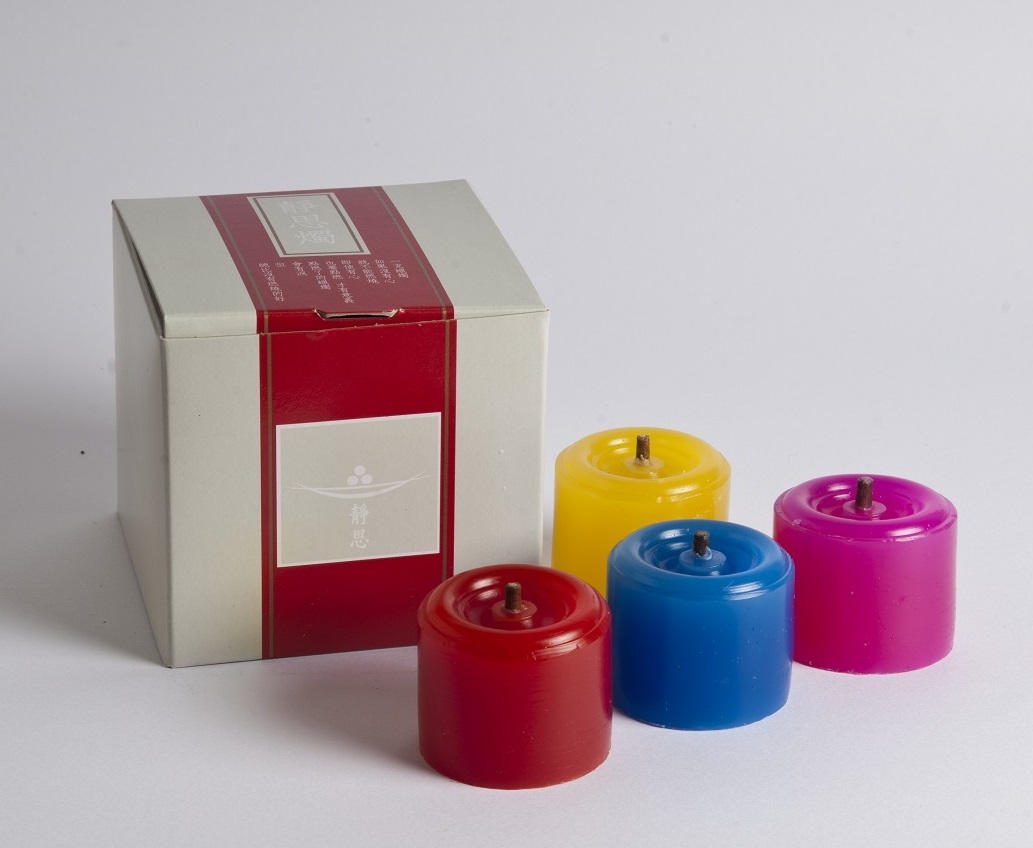Tzu Chi Q&A
A Glimpse into the Missions and Spirit of Tzu Chi
When the goodness in everyone is awakened,
world peace and harmony shall be possible.
1. Tzu Chi is a socially-engaged Buddhist group. What does that mean?
| Tzu Chi volunteers put the Buddha's teachings into action by going amongst people to serve. Instead of focusing on self-cultivation and pursuing personal spiritual growth, they learn and experience Buddhist teachings by putting them into practice in their everyday life and giving of themselves to benefit others. |
In Beira, Mozambique, a local Tzu Chi member translates a Cyclone Idai survivor's account of her health condition for a Tzu Chi doctor from Taiwan. (Wang Zhong-yi) |
Tzu Chi volunteers in Indonesia bring care and cash aid to those injured in the 2018 Sulawesi earthquake and tsunami. (Tzu Chi Indonesia) |
2. Tzu Chi is now one of the largest NGOs in the Chinese-speaking world. How does Master Cheng Yen manage such a big organization?
When asked how she manages Tzu Chi, Master Cheng Yen always replies, "With precepts and love."
With precepts in mind, Tzu Chi members will be able to discipline themselves. And with love in their hearts, they will have self-respect and further love others around them.
3. As Tzu Chi is a Buddhist organization, will Tzu Chi volunteers try to convert the people they help to Buddhism?
No. In carrying out Tzu Chi's missions, all that Tzu Chi volunteers hope is to relieve the suffering of others. They do so regardless of race, religion, or nationality and will never ask for anything in return. They believe that love is a universal value shared by all religions and they respect everyone's religious faiths.
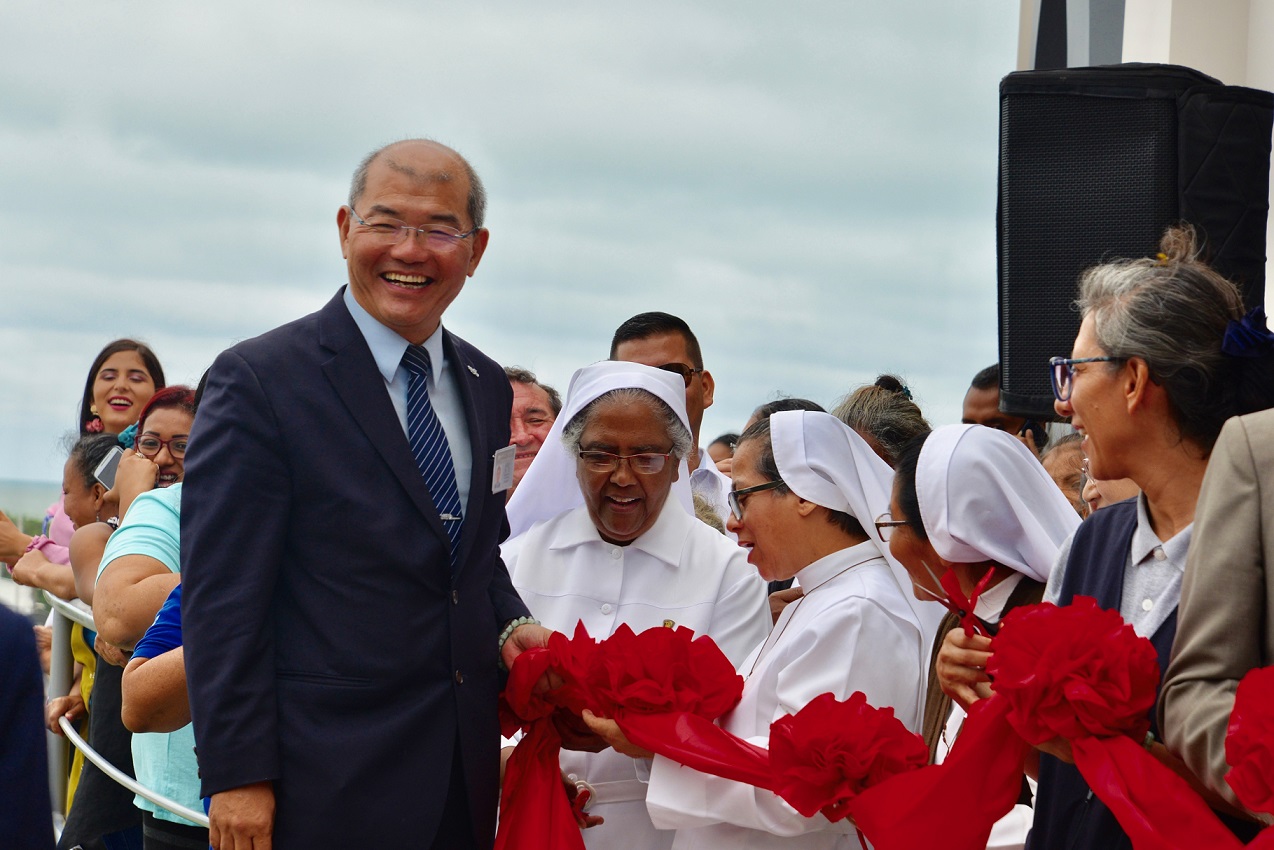
Tzu Chi volunteers attend the inauguration of a Catholic church in Canoa, Ecuador that Tzu Chi helped rebuild after it was destroyed in a 7.8-magnitude earthquake in 2016. (Tina Tuan)
4. Why do Tzu Chi volunteers bow 90 degrees when they hand out supplies to their aid recipients?
| Tzu Chi volunteers bow to people who receive Tzu Chi's aid supplies in order to show their deep respect to them. They do this because they are grateful to their aid recipients for giving them the opportunity to serve and for reminding them to count their blessings. | 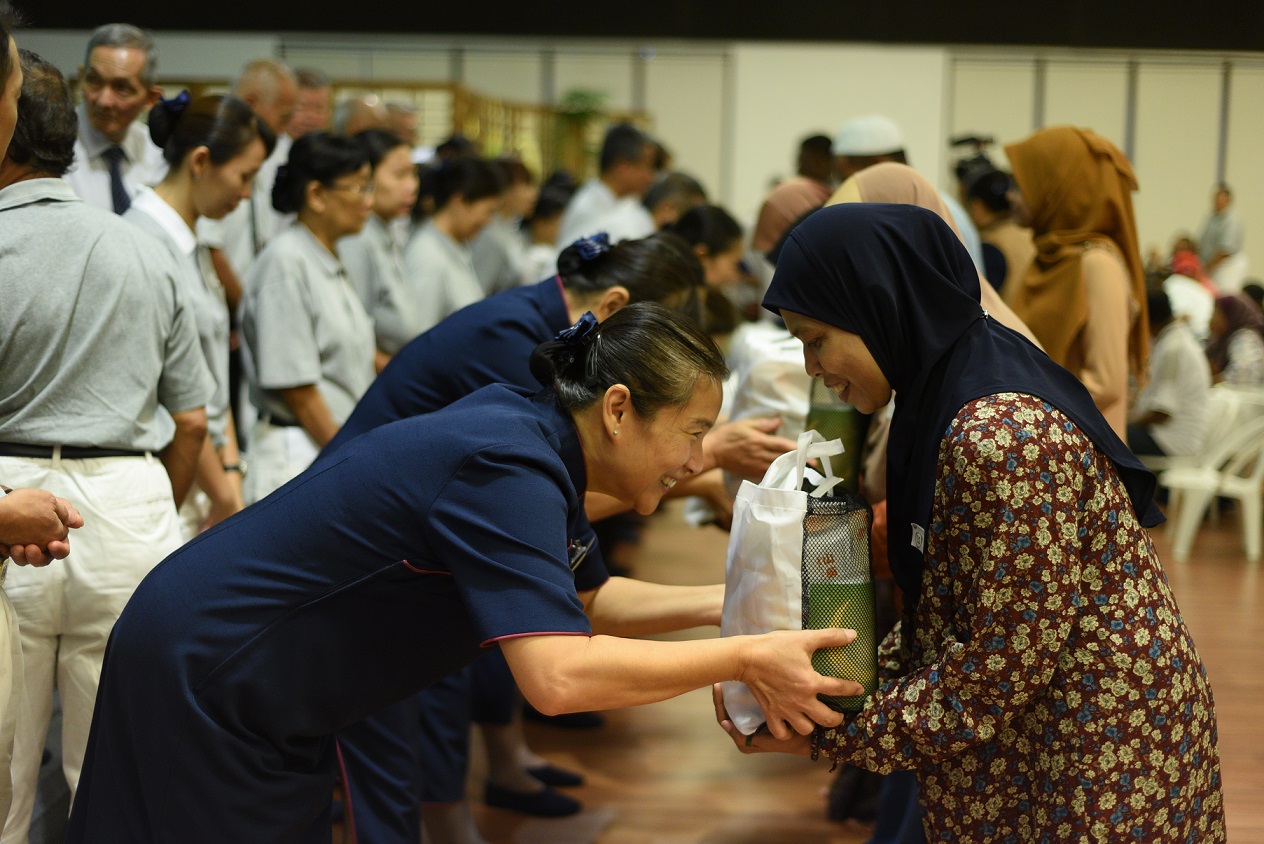
Tzu Chi volunteers in Kedah, Malaysia respectfully hand out gifts to Tzu Chi's Muslim aid recipients for them to celebrate the end of Ramadan. (Li Jun-jin) |
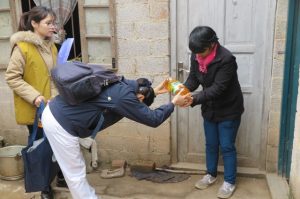
A Tzu Chi volunteer personally delivers winter aid supplies to a needy family in Guangxi, China and wishes them well on behalf of Tzu Chi. (Luo Xiaochun) |
5. Why do Tzu Chi volunteers prostrate themselves in the presence of Master Cheng Yen?
Prostration is a gesture used in Buddhist practice to show reverence to persons or other elements of Buddhism. In Chinese culture and tradition, prostration is also used to show respect to social elders or superiors. So, just as how Master Cheng Yen would prostrate herself to other venerable Buddhist Dharma masters, Tzu Chi volunteers prostrate themselves to Master Cheng Yen to show their respect, not to worship her as a divine figure.
6. Do Tzu Chi offices in other parts of the world receive financial support from Tzu Chi Taiwan?
Tzu Chi volunteers around the world usually raise funds themselves and use the local resources they can gather to carry out Tzu Chi's missions in their countries of residence. However, when a disaster strikes, Tzu Chi volunteers close to the affected country will go to offer support. In case of a major disaster, Tzu Chi volunteers around the world will all mobilize to fundraise for the affected country.
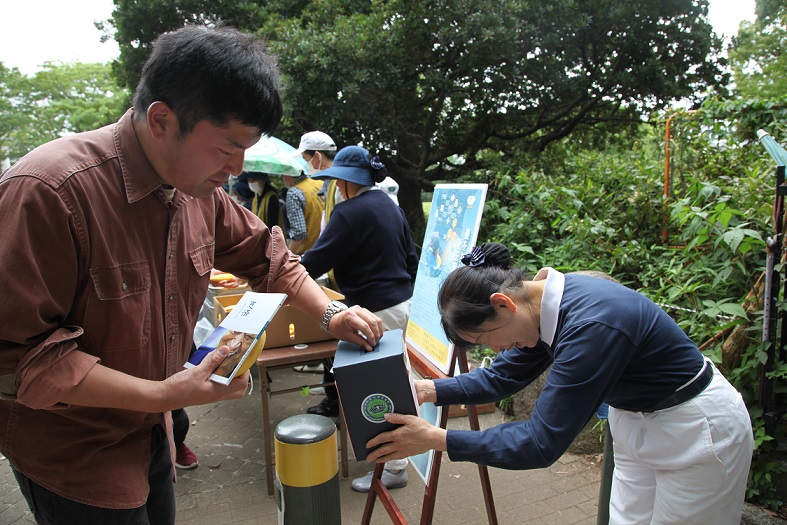
In Tokyo, Japan, the homeless who regularly receive Tzu Chi’s hot meals donate money to help Cyclone Idai survivors in Africa. (Su Mei-jing)
7. Do people's donations also go to support Master Cheng Yen and the monastic practitioners at the Jing Si Abode?
Living by the motto "No work, no meal," Master Cheng Yen and her monastic disciples at the Jing Si Abode work to support themselves and do not accept offerings in any form from others. Instead, they provide free meals and accommodation to all visiting Tzu Chi volunteers and staff working at the Jing Si Abode.
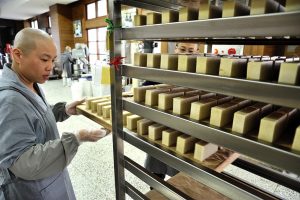
Monastic practitioners at the Jing Si Adobe are making soaps, one of the tasks they do to support themselves. (Huang Hsiao-che)

Tzu Chi's monastic practitioners grow their own crops to provide for themselves, Tzu Chi staff, and visitors. (Chen Zhong-hua)
8. What do the monastic practitioners at the Jing Si Abode do to support themselves?
In the early days, they farmed, sewed baby shoes, made candles and contracted various kinds of manual work to support themselves, such as knitting sweaters, assembling toy parts, woodcarving, and making gloves, clothes, baby diapers, necklaces, plastic flowers, etc. Nowadays, in addition to farming and making candles, they make and sell handmade soap, hydrosols, pottery products, and many food products, including multigrain drink mix, roasted nuts and berries, baked rice crust, cocoa powder, dried vegetables, burdock root powder, and instant rice, which is often used in disaster relief. These products are available at Jing Si Books & Café.
|
Tzu Chi's handmade soaps are made from natural ingredients through a non-polluting process. (Jing Si Publications) |
Tzu Chi's multigrain powders are vegan and can be made into drinks, snacks, and desserts. (Gu Ting-he) |
Tzu Chi's candles do not drip or smoke when burned. (Jing Si Publications) |
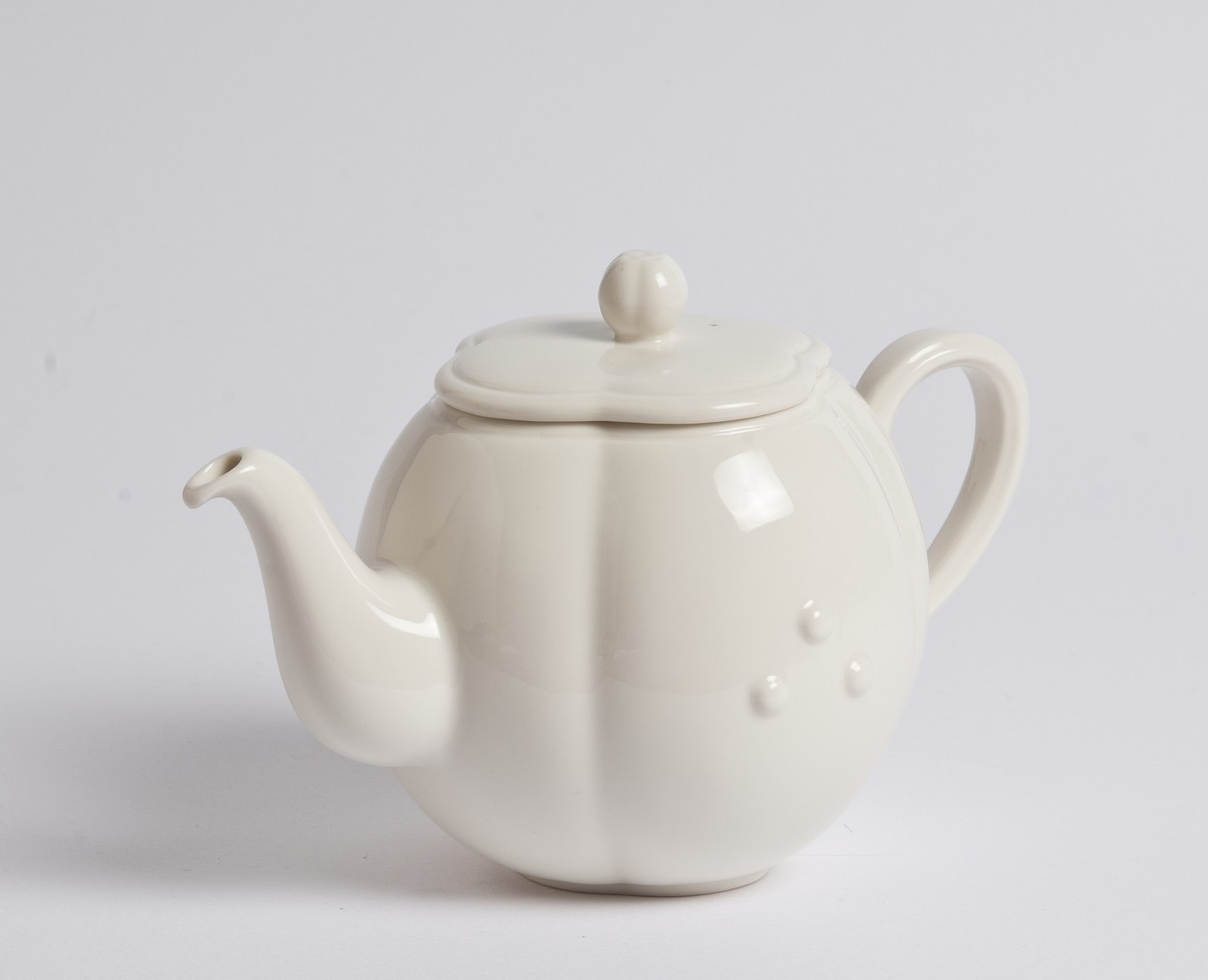
Designed and crafted by monastic practitioners at the Jing Si Abode, Tzu Chi's pottery products and artworks are modest, elegant and unique in style. (Jing Si Publications) |
9. What is a Jing Si Hall?
The Jing Si Hall is a place where people can visit and learn about the Buddhist spirit and Tzu Chi's missions and ideals. It is also where Tzu Chi volunteers gather for spiritual cultivation and hold activities for people in their communities. There are Jing Si Halls across Taiwan and in other parts of the world. In times of disaster, Jing Si Halls also serve as disaster relief coordination centers and shelters for those affected.
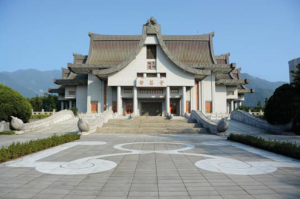
Jing Si Halls welcome people to come and get a glimpse of the Buddha's teachings and Tzu Chi's work. (Tzu Chi Foundation)
10. How can I make donations to Tzu Chi?
You can go to a Tzu Chi office near you, contact a Tzu Chi volunteer, send a check, wire your donation, or donate online at https://goo.gl/aBY5Tj.
Contact Us | Plan a Visit | Donate
8 Lide Road, Beitou 11259, Taipei, Taiwan
886-2-2898-9999
005741@daaitv.com
©Tzu Chi Culture and Communication Foundation
All rights reserved.

